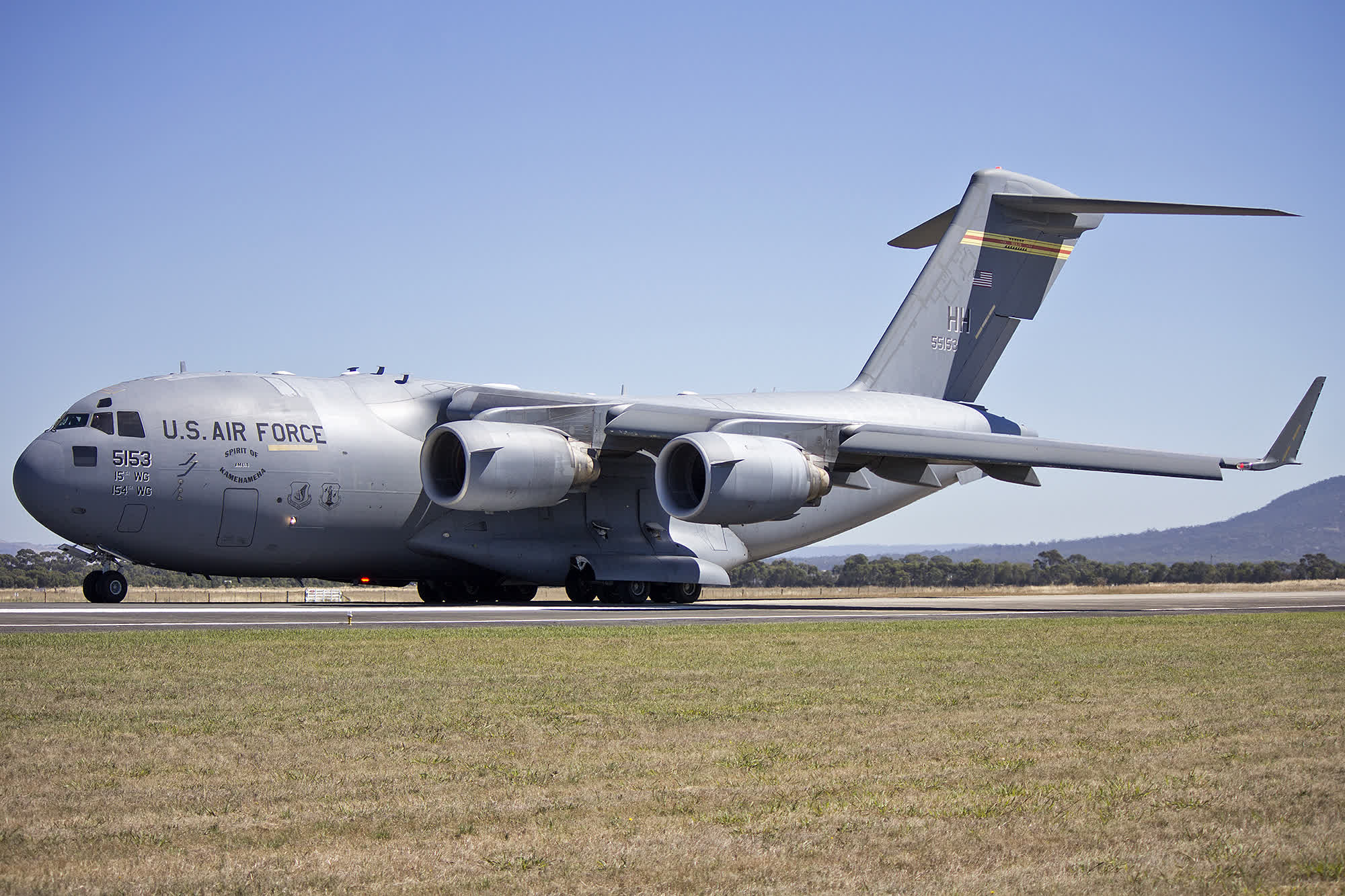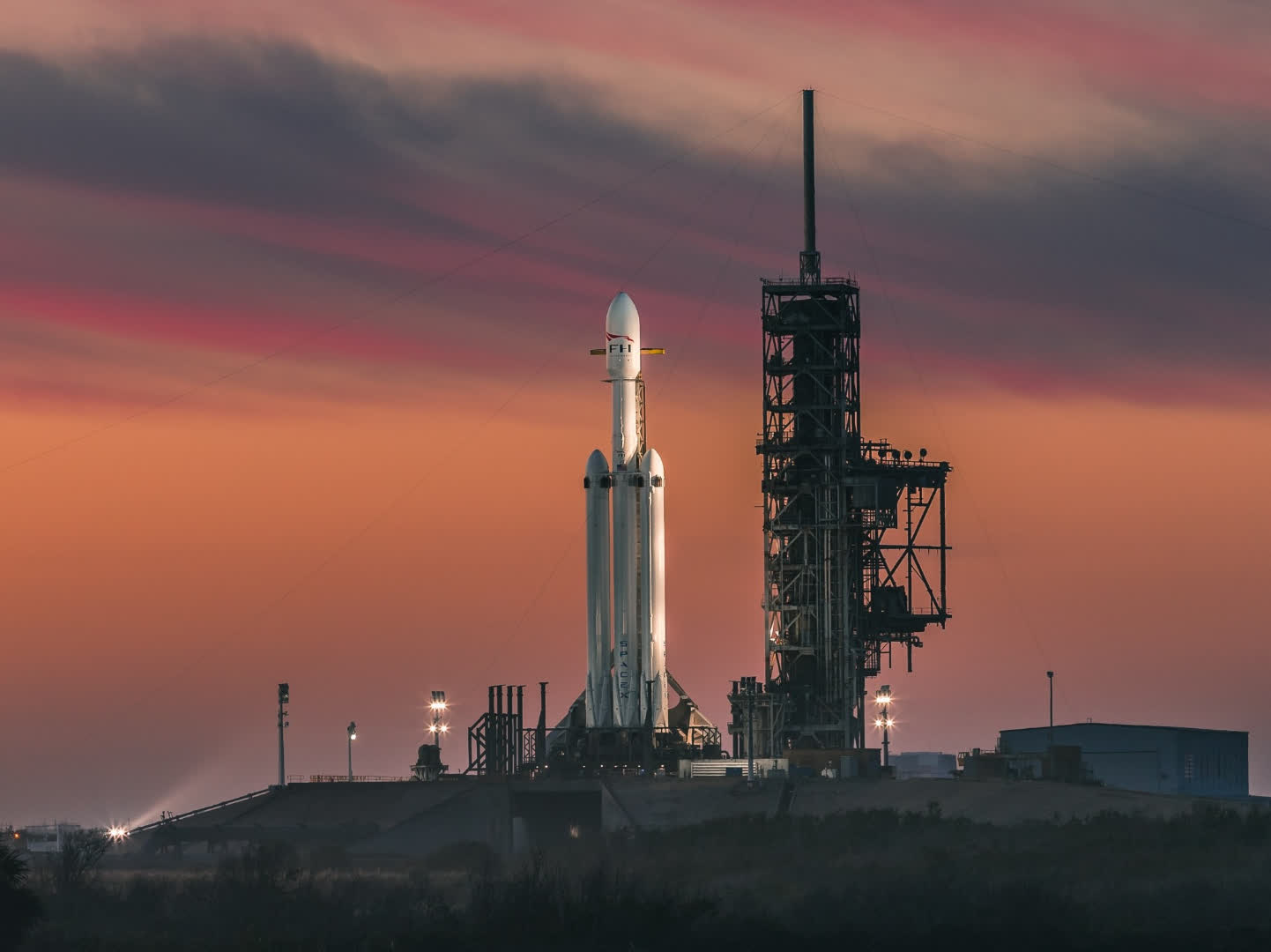In a nutshell: The US military and SpaceX have teamed up to build a rocket capable of transporting weapon systems anywhere in the world in an hour. The goal is to drastically reduce payload delivery time over existing military transport aircraft while maintaining storage capacity. With the Falcon 9 and Falcon Heavy's reusable rocket technology being one of SpaceX's landmark achievements in recent years, the company will now need to develop a much more powerful and faster version that can launch with up to 80 metric tons of military payload and is able to land it anywhere in the world in 60 minutes.
SpaceX has recently signed a contract with the US military that will see both parties collaborate on developing superfast rockets for transporting weapons around the globe. The deal is said to have been finalized just days after SpaceX signed a $149 million contract with the Pentagon to develop missile-tracking satellites.
Elon Musk's rocket company has an impressive track record of launching and safely landing reusable rockets like the Falcon 9 and Falcon Heavy. It was also the first commercial company to send NASA's Crew Dragon capsule of astronauts into space, docking them with the ISS in May this year.
Business Insider reports that SpaceX will now assess the feasibility and challenges of developing a 7,500 mph-capable rocket that can carry the equivalent payload of a US C-17 military transport aircraft. While the latter is said to take around 15 hours to complete a 7,652-mile journey from Florida to Afghanistan, SpaceX's rocket will take just 60 minutes to do so.

The head of US Transportation Command, Gen. Stephen Lyons, noted that SpaceX is "moving very, very rapidly in this area," and that he expects initial testing to begin in 2021. The US military and SpaceX will also be joined by another aerospace company, Exploration Architecture Corporation, for research on this project.
While the idea of a 7,500 mph rocket carrying weapon systems seems a bit scary, military application of such technologies has historically fast-tracked innovation and advancement in other industries. SpaceX's R&D on this project could potentially benefit its future Starlink satellite launches, help it secure more NASA crew missions, as well as boost prospects for space tourism.
